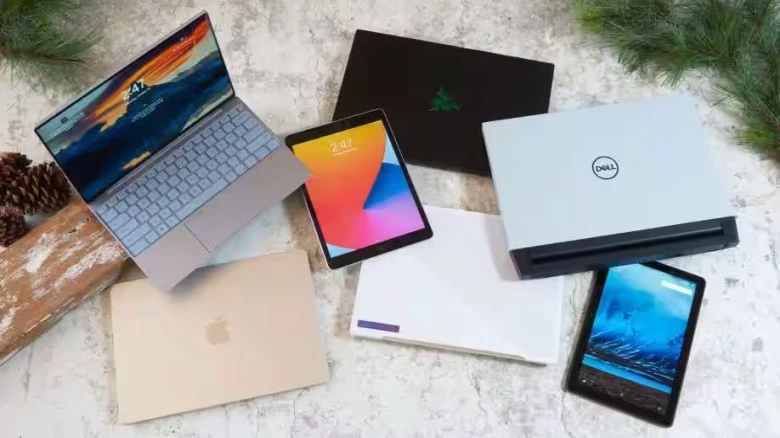Imports are still permitted under the luggage regulations, though. The Import Licencing Rules will not apply to a single laptop, tablet, all-in-one computer...
Digital Desk: India on Thursday, August 3, announced import restrictions on laptops, tablets, and personal computers with immediate effect in a significant measure intended to stimulate domestic production.
"Import of laptops, tablets, all-in-one personal computers, ultra small form factor computers and servers falling under HSN 8741 shall be'restricted' and their import would be allowed against a valid licence for restricted imports," said a notification issued by the ministry of commerce.
Imports are still permitted under the luggage regulations, though. The Import Licencing Rules will not apply to a single laptop, tablet, all-in-one computer, or ultra-small form factor computer, including those purchased from online marketplaces and shipped via post or courier.
But you will need to pay the duty on those things. Under the previous government, imports were free.
Details about the new import regulations in greater detail
The announcement also states that 20 of these devices (laptops, tablets, and PCs) per consignment will be exempt from import licence requirements if they are used for product development, research and development, testing, benchmarking, evaluation, and repair.
Please note that only products not intended for sale are covered by these exemptions. Once the intended use of the import is achieved, the products must be destroyed or reexported.
It was further stated that returning products that had been shipped overseas for repair did not necessitate a license for restricted imports.
Initiative to increase domestic manufacturing
As India attempts to leverage its sizable consumer market to compel firms to begin production in India, experts believe the move will strengthen the government's "Make in India" initiative.
"The intention behind the move is to encourage Indian manufacturers. It's not a nudge; it's a push, according to Ali Akhtar Jafri, a former general manager of the association for the electronics sector, MAIT.
According to economist Madhavi Arora at Emkay Global, the aim appears to be "import substitution of specific goods that are heavily imported."
To discourage imports and promote domestic production in the past, India depended on high import levies.
India made a remarkable $38 billion in mobile phone sales in 2022, but only $4 billion in laptop and blanket production.
Production-related incentives
India actively encourages local production by providing incentives tied to output in a variety of industries, including electronics.
To draw large investments in the production of IT hardware, India's $2 billion manufacturing incentive scheme has also extended the deadline for applications. Servers, laptops, tablets, and personal PCs are all included in this project.
This incentive programme is essential to India's goal of becoming a major player in the global electronics supply chain by 2026, when it expects to produce $300 billion worth of electronics annually.

Leave A Comment